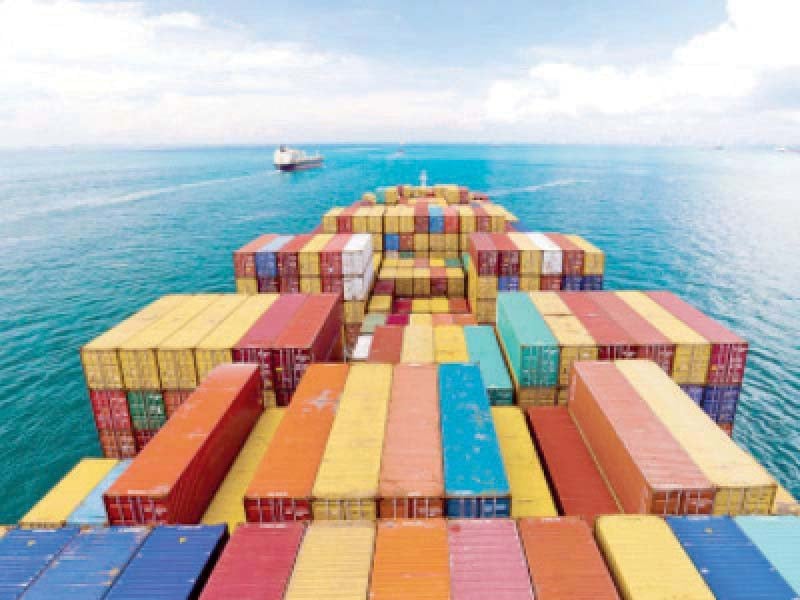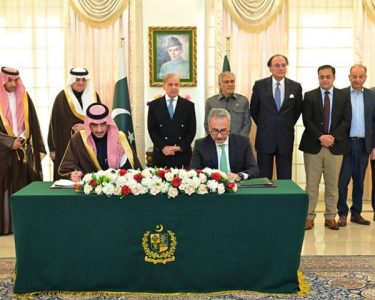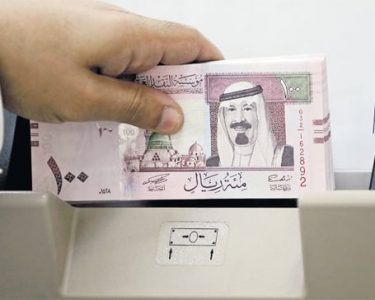LAHORE:
Pakistan’s preferential trade access to the European Union (EU) under the Generalised Scheme of Preferences Plus (GSP+) has once again come under scrutiny following a statement by Ambassador Olof Skoog, the EU Special Representative for Human Rights (EUSR).
The ambassador reiterated Pakistan’s significance as a key partner in South Asia while emphasising the country’s obligations under the trade arrangement. His remarks have sparked concerns among exporters, raising questions about the potential risks associated with Pakistan’s reapplication for the scheme.
“Pakistan remains a key partner for the EU in South Asia. Our relationship is built on shared values of democracy, human rights, and the rule of law, guided by the principles of the UN Charter and international norms.
The EU welcomes the fact that Pakistan has become the largest beneficiary of GSP+, with businesses increasing their exports to the EU market by 108% since the launch of the trade scheme in 2014,” Skoog stated.
However, his comments also carried a cautionary note. “As we approach the midterm of the current monitoring cycle, we encourage Pakistan to continue on its reform path as it prepares for reapplication under the upcoming new GSP+ regulation. The trade benefits under GSP+ depend on the progress made on addressing a list of issues, including on human rights, and tangible reforms remain essential.”
This statement has raised eyebrows in export community, particularly in the textile and garments sector, which has been a major beneficiary of GSP+.
Ijaz Khokhar, Patron-in-Chief of the Pakistan Readymade Garments Manufacturers and Exporters Association (PRGMEA), expressed alarm over the remarks, urging the government to seek clarity from the EU envoy. “This is an alarming statement for exporters. The government must immediately ask the ambassador to elaborate on what specific human rights issues or freedom of speech concerns he is referring to. If there is any solid evidence, it should be brought to light,” Khokhar said.
He also pointed out that such statements often carry political undertones, given Pakistan’s uncertain political landscape. “Is this purely about human rights, or is political uncertainty also playing a role here?” he questioned.
Pakistan was granted GSP+ status on January 1, 2014, after ratifying 27 international conventions and committing to their implementation. The trade arrangement serves as a special incentive to promote good governance and sustainable development by granting zero-rated or preferential tariffs on nearly 66% of tariff lines, significantly enhancing Pakistan’s export potential in the EU market.
Since its inception, GSP+ has played a pivotal role in strengthening EU-Pakistan trade relations. Between 2014 and 2022, Pakistan’s exports to the EU surged by 108%, while imports from the EU rose by 65%. The total trade volume between the two partners expanded from 8.3 billion in 2013 to 14.85 billion.
Sectors such as garments, bed linen, terry towels, hosiery, leather, sports goods, and surgical instruments have particularly benefited from these concessions.
A former chairman of the All Pakistan Textile Mills Association (APTMA) also warned of potential repercussions if the EU’s concerns are not addressed.
“Our competitor exporting countries will not remain silent on this. They will highlight this statement, and if foreign buyers get even a hint that Pakistan’s GSP+ status is at risk, they will shift their orders elsewhere. This could result in a sharp decline in our exports,” he said.
“With the reapplication process approaching, we believe that Pakistan must engage diplomatically to ensure that trade benefits continue without interruption,” he added.




